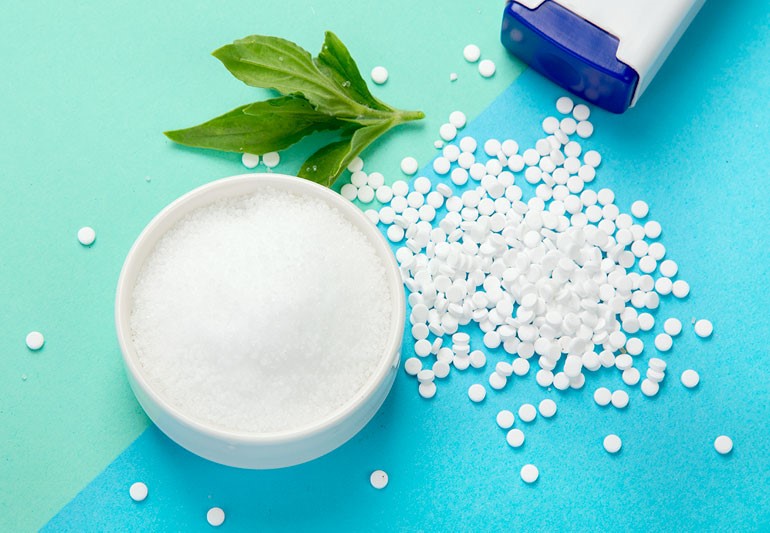ASPARTAME
Aspartame is a widely used artificial sweetener that has gained popularity due to its intense sweetness and low-calorie content. Chemically, it is composed of two amino acids, phenylalanine and aspartic acid, along with a methyl ester which gives it its sweet taste. Aspartame is approximately 200 times sweeter than sucrose (table sugar), making it a highly efficient sweetening agent for food and beverages.Initially discovered in 1965, aspartame received approval from regulatory authorities such as the U.S. Food and Drug Administration (FDA) in the early 1980s for use in various food and beverage products. Since then, it has been widely utilized in the production of sugar-free or low-calorie foods, diet sodas, chewing gum, and a variety of other products.


Features
- Intense Sweetness: Aspartame is approximately 200 times sweeter than sucrose (table sugar), allowing for a much smaller quantity to be used to achieve the desired level of sweetness in food and beverages.
- Chemical Composition: It is composed of two amino acids, phenylalanine and aspartic acid, along with a methyl ester which gives it its sweet taste.
- Widespread Use: Aspartame is widely utilized in the production of sugar-free or low-calorie foods, diet sodas, chewing gum, and various other products.
- Taste Stability: Aspartame maintains its sweetness even when heated, making it suitable for use in a wide range of cooking and baking applications.
Benefits
- Low-Calorie Option: Aspartame provides sweetness without the high caloric content of sugar. This makes it an attractive option for individuals who are trying to manage their weight or reduce their overall calorie intake.
- Diabetes Management: Aspartame does not significantly impact blood sugar levels, making it suitable for individuals with diabetes or those who need to monitor their blood glucose levels closely.
- Dental Health: Since aspartame does not contribute to tooth decay or cavities like sugar does, products sweetened with aspartame can be part of a dental-friendly diet.
- Reduced Environmental Impact: Aspartame requires fewer resources for production compared to sugar, reducing its environmental footprint in terms of land use, water consumption, and energy usage.


Applications
- Yogurt and Dairy Products: Aspartame may be used in the production of sugar-free or low-calorie yogurt, pudding, and other dairy-based products to provide sweetness without the added sugars.
- Baking Mixes: Aspartame can be included in baking mixes for cakes, muffins, cookies, and other baked goods to reduce the sugar content while maintaining sweetness and flavor.
- Condiments and Sauces: Aspartame may be added to condiments and sauces such as salad dressings, and ketchup to enhance flavor without increasing sugar content.
- Sugar-Free Gum: It adds sweetness to sugar-free chewing gum.
